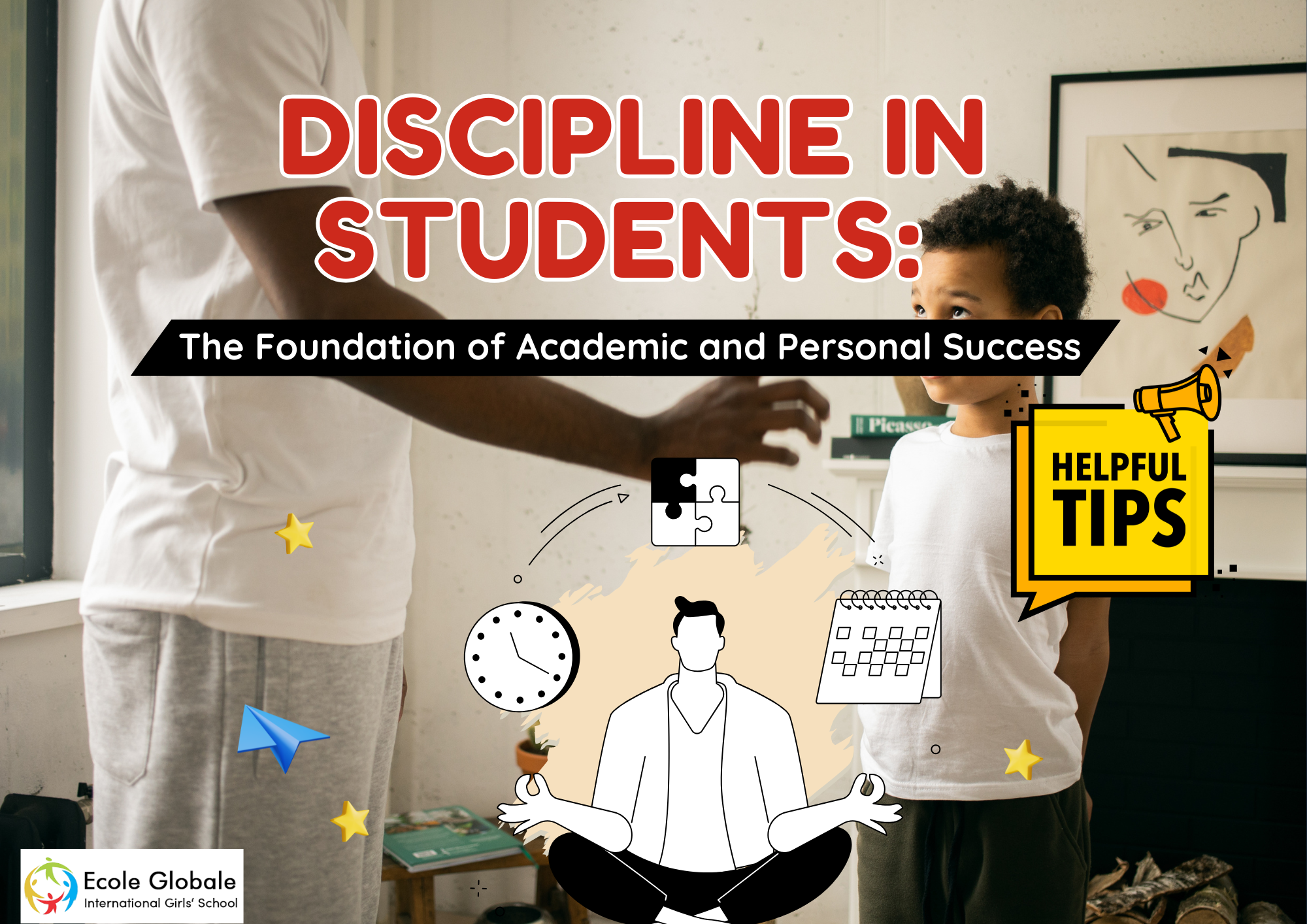In the journey of education, intelligence and talent alone are not enough. One of the most crucial ingredients in achieving success is discipline in students.
Discipline is the ability to control one’s behavior, follow rules, and stay focused on goals despite distractions or challenges. For students, discipline is not just about obedience—it’s about building habits that foster learning, personal development, and responsibility.
This article explores the importance of discipline in students, how it affects various aspects of life, and practical ways to instill and nurture it in both academic and personal environments.
Why Discipline in Students Matters

1. Enhances Academic Performance
Students who are disciplined tend to:
-
Stick to study schedules
-
Complete assignments on time
-
Avoid procrastination
-
Prepare effectively for exams
By consistently applying themselves, disciplined students develop strong work ethics that result in better academic outcomes.
2. Builds Strong Character
Discipline in students promotes traits like honesty, responsibility, and perseverance. It teaches them to respect rules, value time, and make thoughtful decisions—skills that benefit them beyond the classroom.
3. Encourages Self-Control
Disciplined students learn how to control impulses, manage emotions, and resist distractions such as excessive screen time or peer pressure. This self-control is essential for both academic focus and emotional maturity.
4. Prepares for Future Success
Whether pursuing higher education or entering the workforce, discipline is key. It enables students to:
-
Meet deadlines
-
Handle responsibilities
-
Work independently or in teams
-
Set and achieve long-term goals
In short, discipline in students lays the groundwork for future leadership and personal success.
Types of Discipline for Students

1. Self-Discipline
This is the internal drive to do what’s right, even without supervision. Self-disciplined students:
-
Wake up on time
-
Stick to their study routines
-
Avoid distractions during study time
2. External Discipline
This involves rules and guidelines set by parents, teachers, or school authorities. It includes:
-
Following classroom rules
-
Adhering to school dress codes
-
Maintaining punctuality and decorum
3. Emotional Discipline
This is about managing emotions in difficult situations. Emotionally disciplined students:
-
Respond calmly to stress or criticism
-
Resolve conflicts peacefully
-
Practice empathy and respect toward others
How to Develop Discipline in Students

1. Set Clear Expectations
Parents and educators should clearly communicate what is expected in terms of behavior, academics, and responsibilities. Consistency in expectations creates structure and clarity.
2. Create Routines and Schedules
Establishing daily routines for study, play, meals, and rest helps students stay organized and focused. A well-structured schedule promotes balance and reduces anxiety.
3. Encourage Goal Setting
When students set academic and personal goals, they learn to stay committed and motivated. Help them break down long-term goals into short, actionable steps.
4. Reward Positive Behavior
Positive reinforcement encourages continued discipline. Simple praise, privileges, or incentives for completing tasks can motivate students to stay on track.
5. Be a Role Model
Children often emulate adults. Teachers and parents should model disciplined behavior through time management, respectful communication, and consistency in their actions.
6. Minimize Distractions
Creating a distraction-free environment, especially during study time, is essential. Limit mobile phone usage, social media, and television when it’s time to focus.
The Role of Schools in Building Discipline

Schools play a vital role in promoting discipline in students by:
-
Establishing a code of conduct
-
Ensuring consistent consequences for indiscipline
-
Providing mentorship and guidance
-
Encouraging participation in structured activities like sports, clubs, and debates
Teachers who combine empathy with firmness can make discipline a part of the learning process rather than a punishment.
Challenges in Maintaining Discipline

1. Influence of Technology
While digital learning is beneficial, unrestricted use of technology can lead to addiction and loss of focus. Teaching digital discipline is becoming increasingly necessary.
2. Peer Pressure
Students may be influenced by peers to break rules or engage in negative behavior. Educating them on making independent, ethical choices is important.
3. Lack of Motivation
Without clear goals or encouragement, students may lose motivation. Regular support from parents and teachers helps students stay disciplined and inspired.
Benefits of Discipline in Students

-
Better time management
-
Increased confidence and self-esteem
-
Improved academic performance
-
Enhanced social behavior and communication
-
Greater readiness for real-life challenges
Ultimately, discipline in students leads to a balanced, productive, and fulfilling life.
Conclusion
Discipline is not about restrictions—it’s about empowerment. It gives students the tools they need to succeed academically and thrive personally.
Whether it’s sticking to a study plan, respecting others, or managing emotions, discipline in students creates the foundation for a well-rounded, responsible, and successful individual.
In a world full of distractions and challenges, cultivating discipline is more important than ever. By supporting students through structure, encouragement, and consistency, parents and educators can help them unlock their true potential.









